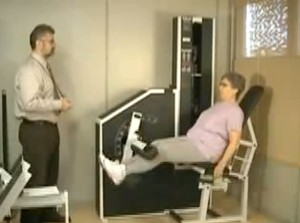Newsletter
MRI Proof that Meditation Can Restructure Your Brain
A new study lead by a Harvard-affliated research team has documented, for the first time, the physical changes that occur in the brain of someone meditates.
The study participants engaged in the eight-week Mindfulness-Based Stress Reduction Program. The program, developed by the Center for Mindfulness at the University of Massachusetts Medical School, has trained more than 22,000 people since 1979 in techniques “to access and cultivate your natural capacity to actively engage in caring for yourself and find greater balance, ease, and peace of mind.”1
***This is where the ‘Read More’ link is***
The physical state of participants’ brains were evaluated with magnetic resonance imaging (MRI) at two weeks before and after engaging in the program. A control group of nonmeditators had MR brain images taken over the same interval of time.
Sue McGreevey of MGH Communications, writes: “The analysis of MR images, which focused on areas where meditation-associated differences were seen in earlier studies, found increased gray-matter density in the hippocampus, known to be important for learning and memory, and in structures associated with self-awareness, compassion, and introspection.” These changes were not seen in the control group.
She adds: “Participant-reported reductions in stress also were correlated with decreased gray-matter density in the amygdala, which is known to play an important role in anxiety and stress.”
The senior author of the study Sara Lazar of the MGH Psychiatric Neuroimaging Research Program and a Harvard Medical School instructor in psychology, says “This study demonstrates that changes in brain structure may underlie some of these reported improvements and that people are not just feeling better because they are spending time relaxing.”
For Sue McGreevey’s complete article click here.
MRI Proof that Meditation Can Restructure Your Brain
A new study lead by a Harvard-affliated research team has documented, for the first time, the physical changes that occur in the brain of someone who meditates.
The study participants engaged in the eight-week Mindfulness-Based Stress Reduction Program. The program, developed by the Center for Mindfulness at the University of Massachusetts Medical School, has trained more than 22,000 people since 1979 in techniques “to access and cultivate your natural capacity to actively engage in caring for yourself and find greater balance, ease, and peace of mind.”1
***This is where the ‘Read More’ link is***
The physical state of participants’ brains were evaluated with magnetic resonance imaging (MRI) at two weeks before and after engaging in the program. A control group of nonmeditators had MR brain images taken over the same period of time.
Sue McGreevey of MGH Communications, writes: “The analysis of MR images, which focused on areas where meditation-associated differences were seen in earlier studies, found increased gray-matter density in the hippocampus, known to be important for learning and memory, and in structures associated with self-awareness, compassion, and introspection.” These changes were not seen in the control group.
She adds: “Participant-reported reductions in stress also were correlated with decreased gray-matter density in the amygdala, which is known to play an important role in anxiety and stress.”
The senior author of the study Sara Lazar of the MGH Psychiatric Neuroimaging Research Program and a Harvard Medical School instructor in psychology, says “This study demonstrates that changes in brain structure may underlie some of these reported improvements and that people are not just feeling better because they are spending time relaxing.”
For Sue McGreevey’s complete article click here.
You can experience the changes, too
Meditation is not about sitting cross-legged, burning candles, any religion, or “getting rid of” your ego.
It can be as simple as paying attention to your breath, paying attention to the physical sensations in your body or doing something mundane like washing the dishes with all of your focus and awareness on the activity.
Noticing how the dish feels in your hands. How the water flows over your fingers as you rinse the dish. Becoming aware of the moment you decide the dish is rinsed and is now ready to be put in the dish drainer.
I encourage you to explore mindfulness meditation
Find a practice that you enjoy and commit to daily practice for 30 days. You’ll be surprised at the benefits you enjoy.
Jon Kabat-Zinn (the founder of MBSR) has a wonderfully pithy description of mindfulness in this very brief video.
Here are some resources to get you started:
Brief Guided Meditations with Dr. Robert Eric Dinenberg
Guided Mindfulness Meditation with Jon Kabat-Zinn
The power of movement and mindfulness in self care – Interview with James Gordon, Founder of the Center for Mind-Body Medicine https://itunes.apple.com/us/podcast/15-dr.-james-gordon-founder/id817178956?i=303562614&mt=2
Breathing: the Master Key to Self Healing with Dr. Andrew Weil
https://itunes.apple.com/us/audiobook/breathing-master-key-to-self/id2856379
MD Anderson Cancer Center – Video podcasts on mind-body practices
https://itunes.apple.com/us/itunes-u/mind-body-practices-video/id431863191?mt=10
World of Relaxation: A Guided Mindfulness Meditation Practice for Healing in the Hospital and/or at Home with Jon Kabat-Zinn
Relax and Sleep Well with Glen Harrold
https://itunes.apple.com/us/app/relax-sleep-well-by-glenn/id412690467?mt=8


